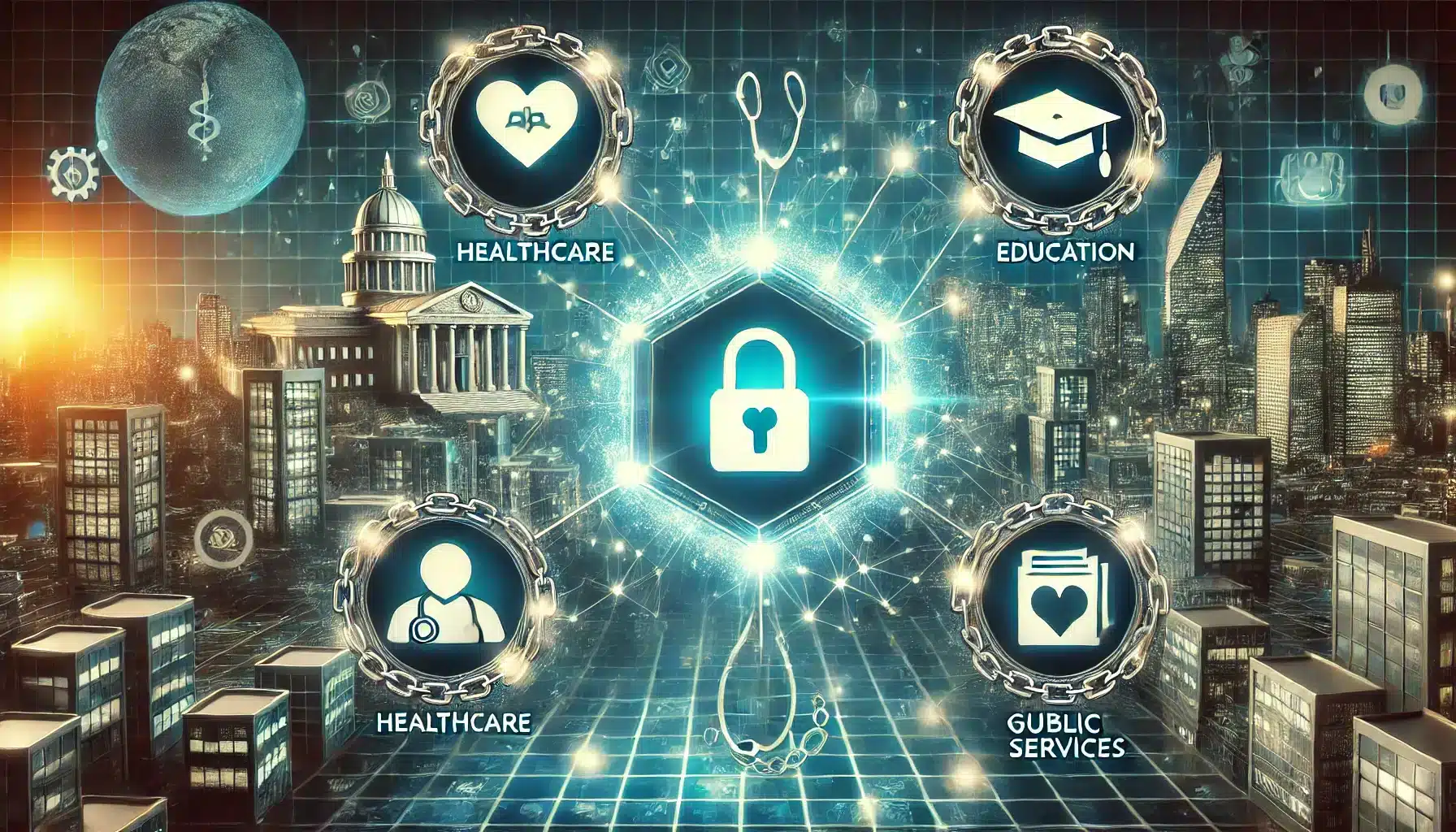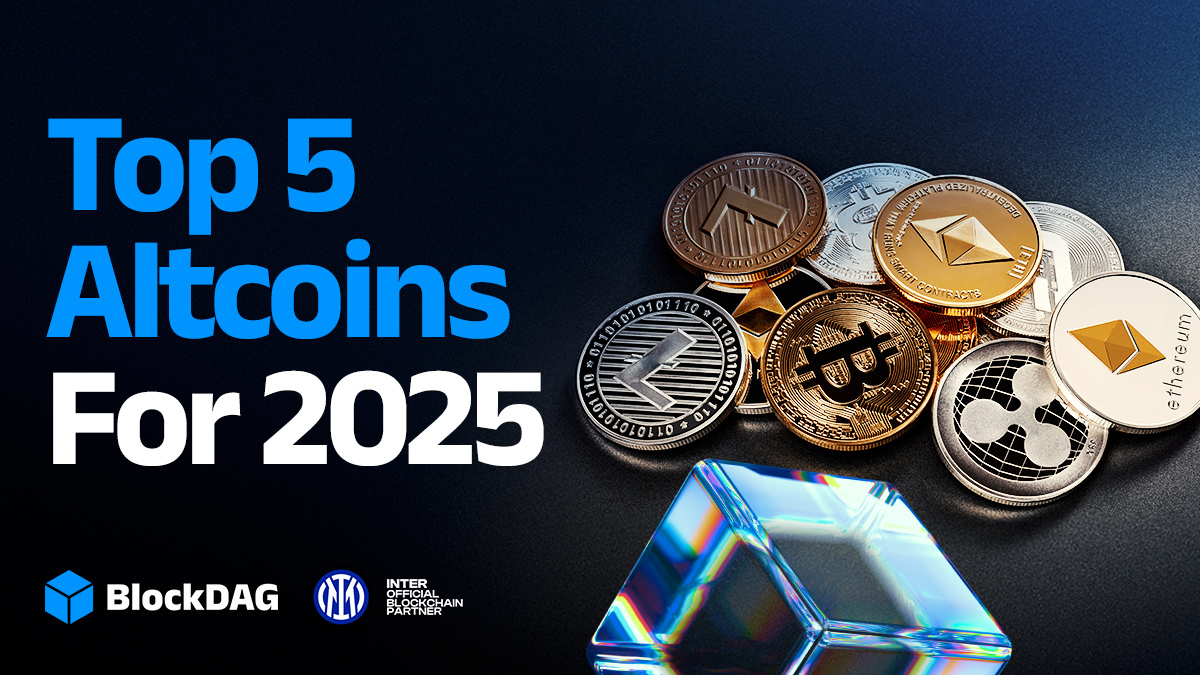 CaryptosHeadlines Media Has Launched Its Native Token CHT.
Airdrop Is Live For Everyone, Claim Instant 5000 CHT Tokens Worth Of $50 USDT.
Join the Airdrop at the official website,
CryptosHeadlinesToken.com
CaryptosHeadlines Media Has Launched Its Native Token CHT.
Airdrop Is Live For Everyone, Claim Instant 5000 CHT Tokens Worth Of $50 USDT.
Join the Airdrop at the official website,
CryptosHeadlinesToken.com
As we navigate deeper into the digital age, the need for secure and reliable data systems has never been greater. Blockchain technology, a decentralized and immutable ledger, is emerging as a transformative force across industries. By 2025, its application in critical sectors like healthcare, education, and public services promises to redefine how data is stored, shared, and protected.
Blockchain Revolutionizing Healthcare
The healthcare sector has long grappled with issues of data breaches, inefficiencies, and fraud. Blockchain offers a solution by ensuring secure patient records that are tamper-proof and easily accessible by authorized entities. For instance, rather than relying on centralized databases vulnerable to cyberattacks, healthcare providers can adopt blockchain-based systems to securely store sensitive information.
Moreover, blockchain enhances data sharing between healthcare institutions, allowing for seamless interoperability. This capability is crucial for improving patient outcomes, especially during emergencies when time-sensitive access to medical history can save lives. Additionally, blockchain aids in combating counterfeit medicines by ensuring supply chain transparency. Pharmaceutical companies can track products from manufacturing to delivery, guaranteeing authenticity and safety.
Transforming Education with Blockchain
Education is another sector poised for a blockchain-driven overhaul. One significant challenge is verifying academic credentials, often a manual and error-prone process. Blockchain enables verifiable academic credentials, allowing institutions to issue digital diplomas and transcripts that employers and other organizations can instantly authenticate.
The technology also addresses growing concerns about student data privacy. By decentralizing data storage, blockchain minimizes the risk of breaches while giving students greater control over their personal information. Furthermore, it fosters global collaboration by enabling secure and efficient sharing of educational resources and research across borders.


Blockchain’s Role in Public Services
In public services, transparency and efficiency are paramount. Blockchain can enhance transparent governance by powering secure and auditable voting systems, reducing electoral fraud and boosting public trust. Some governments have already piloted blockchain-based voting platforms with promising results.
Additionally, blockchain simplifies public records management, such as land registries, birth certificates, and national IDs. By decentralizing these systems, blockchain reduces errors, prevents tampering, and makes data retrieval more efficient. Another impactful use case lies in disaster response and relief efforts, where blockchain ensures fair and transparent distribution of aid, avoiding corruption and mismanagement.
Challenges Ahead
Despite its potential, blockchain adoption isn’t without challenges. Technical barriers, such as scalability and high energy consumption in some blockchain models, remain obstacles. Regulatory uncertainties also pose risks, as governments struggle to keep pace with technological advancements. Finally, resistance to change in traditional systems can hinder blockchain integration, requiring significant stakeholder education and collaboration.
The Future of Blockchain in Data Security
By 2030, the integration of blockchain with emerging technologies like AI and IoT is expected to amplify its impact. Healthcare could see real-time monitoring of patient data, education could leverage global, blockchain-powered academic platforms, and public services could become entirely digital, transparent, and citizen-centric. Overcoming current challenges through innovation and policy support will be key to realizing this vision.
Blockchain is not just a tool for data security; it’s a gateway to a more efficient, transparent, and equitable future across sectors. Stakeholders must recognize its potential and act decisively to build systems that harness its full capabilities.
Follow us on Twitter and LinkedIn and join our Telegram channel to get instant updates on breaking news!














